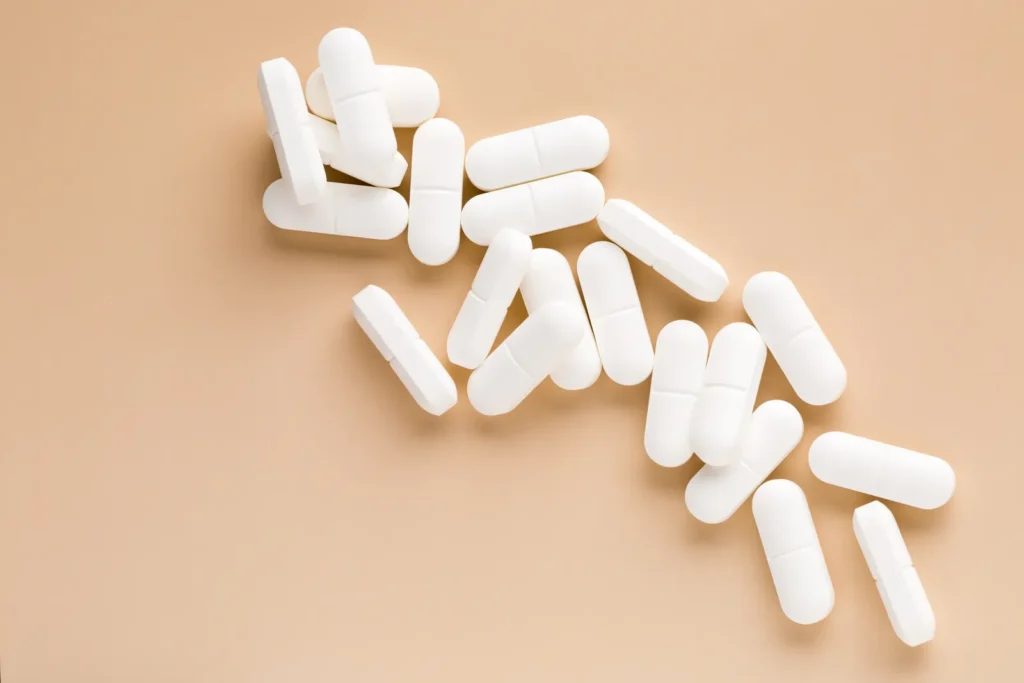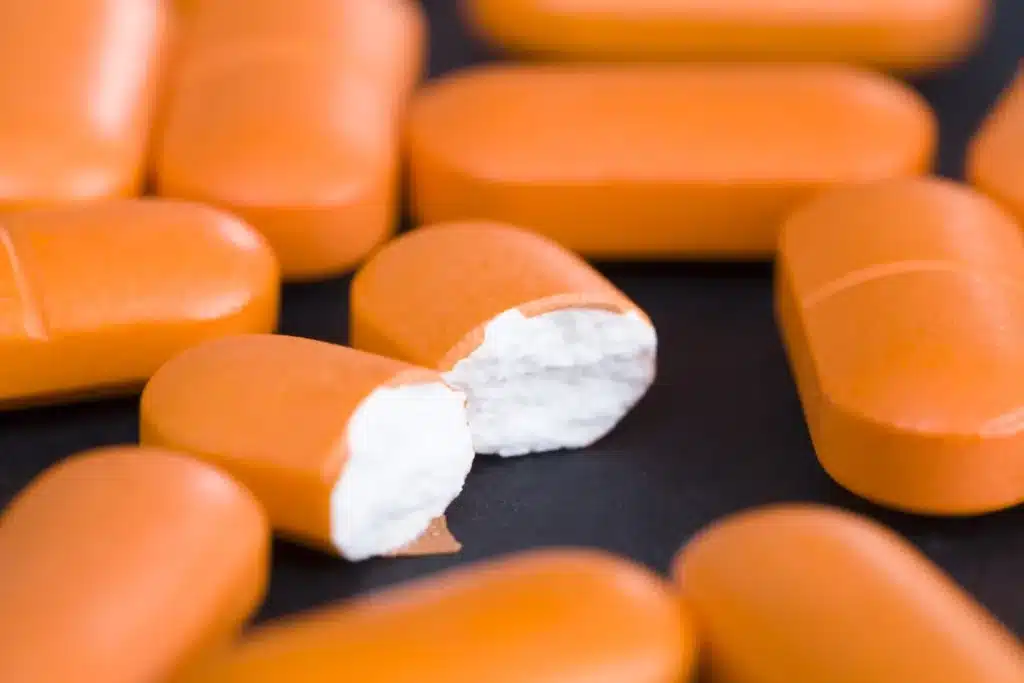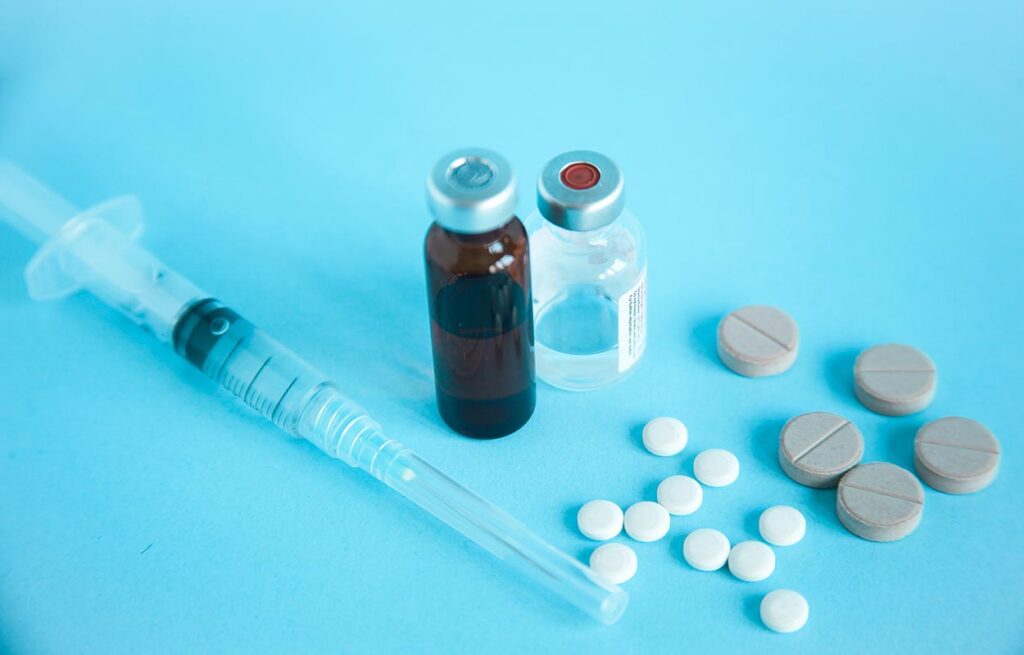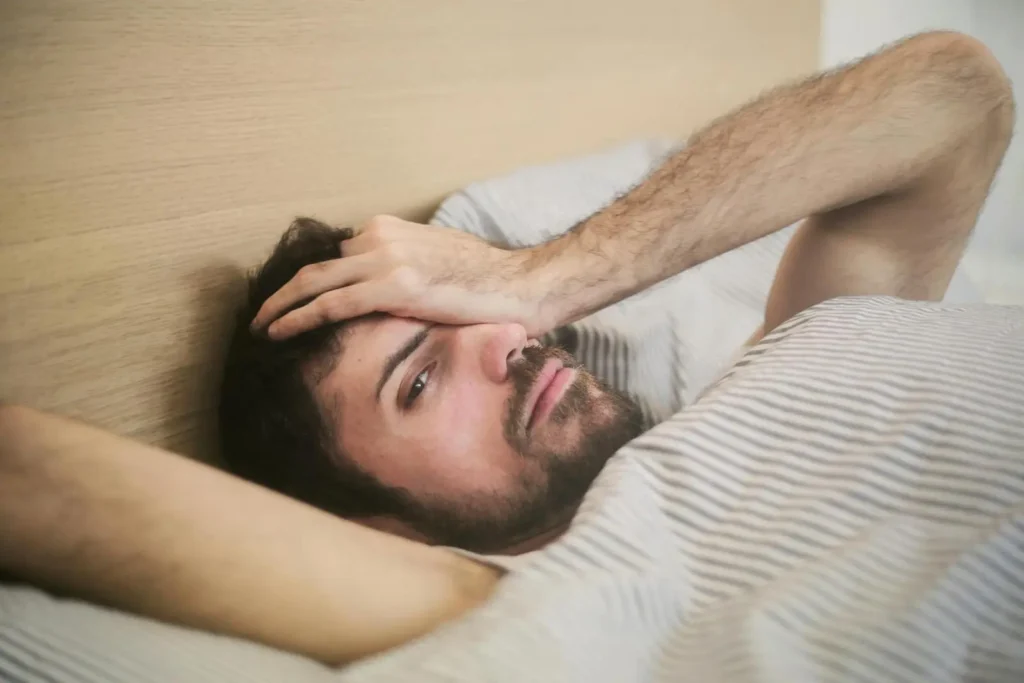Ambien and Alcohol: Risks and Safety Precautions

An estimated 34% of Americans report their sleep quality as “poor” or “only fair,” and over 50 million Americans have chronic sleep disorders.[1] Not getting enough or restful sleep has consequences, including fatigue, low energy, irritability, and problems focusing.
For some, medications like zolpidem (Ambien) can help establish regular sleeping patterns and promote restful sleep. However, drugs like Ambien have risks, including potential interactions with alcohol. Learn more about the risks of Ambien and alcohol and what safety precautions to take.
Key Facts
- Zolpidem (Ambien) is a drug used to treat insomnia and other sleep disturbances by inducing sleep.
- Ambien is a powerful sedative that can have risks, including potentially deadly interactions with alcohol.
- Both Ambien and alcohol can be addictive, compounding the risks of both drugs.
What Is Ambien?
Ambien is the brand name for a pharmaceutical known as zolpidem. This same drug is used in several products, including brand-name medications like Zolpimist, Edluar, and Intermezzo. These medications are prescribed for people with chronic sleep disorders because they act as a central nervous sedative, slowing down brain activity to aid sleep.
Mixing Ambien and Alcohol
As a sedative, Ambien can have similar effects to alcohol on the mind and body. Both Ambien and alcohol are in the depressant class of drugs, meaning that they have sedative effects that lower the heart rate and blood pressure, relax the mind, and cause drowsiness.
These effects make Ambien ideal for inducing restful sleep, but they can be deadly when combined with the effects of alcohol. Mixing the two substances enhances the effects of both, or “potentiating,” which means the depressant effects are exponential. The withdrawal symptoms can also be amplified.
Some of the side effects of mixing Ambien and alcohol include:[2]
- Inability to concentrate
- Drowsiness
- Delirium
- Loss of consciousness
- Falling down
- Slowed speech
- Overdose
- Worsened withdrawal
Alcohol’s Effects on Sleep
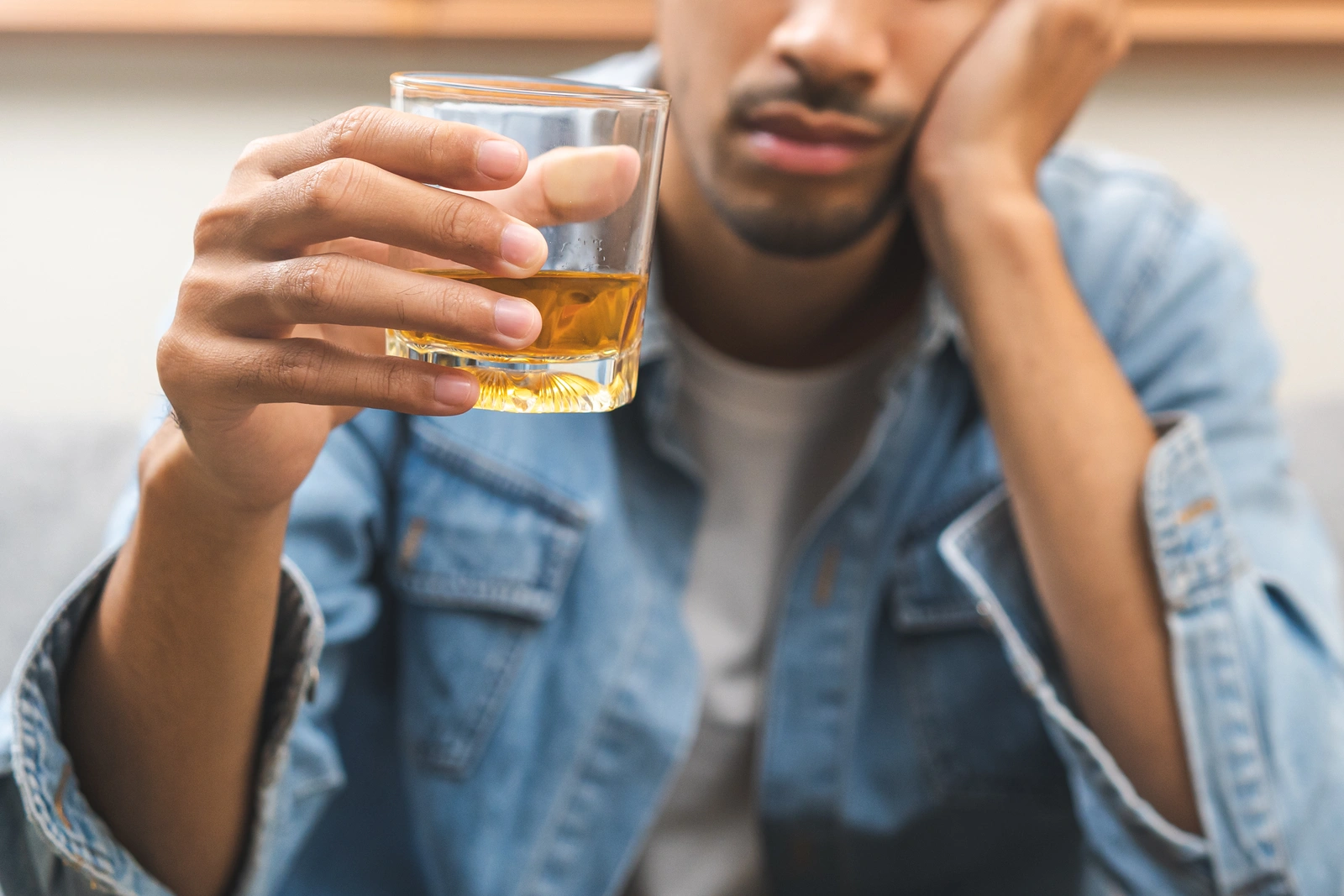
It’s not uncommon for people to drink alcohol as a way of “self-medicating” sleep troubles. While alcohol can make you tired, the quality of sleep is poor. Alcohol has been shown to reduce the amount of rapid eye movement (REM) sleep, which is the deepest and most restful stage of sleep.[3] This can cause sleep disturbances, leading to lingering fatigue the following day.
Drinking alcohol to go to sleep has another risk: addiction. It may start as a drink before bed to go to sleep, but it contributes to a cycle of drinking alcohol to go to bed and drinking caffeinated drinks to stay awake and combat daytime fatigue from poor sleep. This only throws off the sleep cycle more, eventually leading to dependence on these substances to function.
Why Do People Mix Ambien and Alcohol?
Just like people using alcohol to self-medicate insomnia, some people may use Ambien and alcohol to enhance the effects of both drugs and promote deeper sleep. This is also a dangerous cycle, as mixing Ambien with alcohol can slow your brain activity and vital bodily functions to dangerously low levels.
Both Ambien and alcohol can be addictive as well. With regular use, you can build up a tolerance to Ambien, meaning you need more and more to get the same effects. On its own, this can put you at risk for Ambien addiction and overdose. Alcohol’s addictive potential is well known, but it can exacerbate the mind-altering effects of Ambien and increase the risk of addiction.
Ambien and Alcohol Overdose Risks
Combining alcohol and Ambien can leave you disoriented and confused. If you’re not aware, you can take too much Ambien or drink more alcohol than you normally would. This can lead to overdose, which may include symptoms like slowed or difficult breathing, weak pulse, confusion or altered mental state, and unconsciousness.[4]
If you suspect someone is experiencing an overdose involving Ambien or alcohol, call 911 immediately and stay with them until help arrives. Try to keep them awake and breathing. You can lay them on their side to prevent choking on saliva or vomit.
When Can I Drink Again After Taking Ambien?
Because of the depressant effects of these substances, you should never mix any amount of alcohol and Ambien. You should always make sure alcohol is completely out of your system before taking Ambien, and make sure Ambien is completely out of your system before drinking alcohol.
Alcohol leaves the body at different rates depending on the type and amount, as well as other factors. Ambien has a half-life of about 2 hours, which is the time it takes for the body to reduce a drug’s active substance by half.[5] It takes about 5.5 times the half-life for a drug to be eliminated from the body, which is about 11 hours for Ambien.
Elimination of both Ambien and alcohol can vary from person to person due to age, weight, other substances, medical conditions, or organ function. Half-life is merely an estimate of how long the drug takes to eliminate from the body, not a hard-and-fast rule, so be sure to speak to your doctor about when it’s safe to drink alcohol after taking Ambien.
Ambien Addiction
Ambien is habit-forming and addictive. While many people can use zolpidem products safely, people with a history of substance use disorders are more likely to develop an addiction to Ambien.
With regular use, Ambien can cause physical dependence, which is when the body becomes accustomed to the presence of a drug. If you stop taking it or dramatically reduce your dose, you may experience withdrawal symptoms like:[6]
- Anxiety
- Insomnia
- Hand tremors
- Sweating
- Nausea or vomiting
- Hallucinations
- Delirium
- Nervousness
- Panic attacks
- Rapid heart rate and breathing
- Flushing
- Lightheadedness
- Stomach cramps
- Seizures, in rare cases
Physical dependence isn’t an addiction on its own, but it can be part of it. If you want to stop taking Ambien, talk to your doctor. They may recommend a taper schedule to “wean” you off the drug and minimize withdrawal symptoms.
Ambien and Other Substance Use Disorders
Ambien can be addictive on its own, but it also has an addiction-triggering potential. It’s common for people with other types of addiction to experience sleep problems during their substance use or withdrawal and addiction treatment. This can lead to an addiction to a secondary substance or a desire to use other depressant drugs.
Using two or more substances together is known as polydrug or polysubstance use. You can become addicted to multiple substances, which is a polysubstance use disorder. Taking Ambien and alcohol together can increase the likelihood of an addiction to both substances, as well as significant risks.
Treatment for Polysubstance Use Disorder
Neither Ambien nor alcohol is safe to stop using suddenly, as they can have dangerous withdrawal syndromes. If you are struggling with Ambien dependence or addiction, alcohol addiction, or an addiction to both substances, professional addiction treatment is the best course of action.
The first step is medical detox. In this setting, your withdrawal will be monitored by a team of medical professionals to keep you as safe and comfortable as possible while the drugs clear your body. With alcohol and Ambien, you may be given medications to help with symptoms like rebound insomnia or cravings.
After detox, it’s important to start an addiction treatment program to address the underlying emotional, social, psychological, and environmental causes of your addiction. This may occur in an inpatient or outpatient setting with therapies like individual counseling, group counseling, peer support groups, and behavioral therapies.
Be Safe with Ambien
Ambien can be a safe and effective treatment for sleep problems like insomnia, but it’s a powerful sedative that can have addiction potential on its own. Mixing Ambien and other sedatives with alcohol can be a deadly combination, increasing the risk of addiction and overdose.
